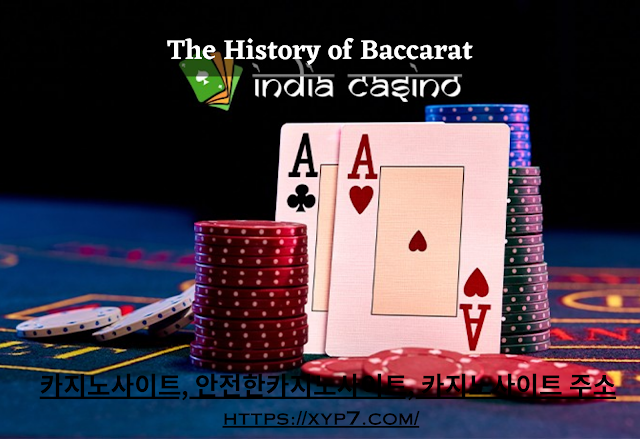The History of Baccarat
The History of Baccarat
Baccarat, the game of chance, originated in France in the 1400s. Its inventor, Felix Falguiere, may have gotten his inspiration from ancient Romans who rolled dice to determine their fate. Whether they would become a high priestess or lose their religious credentials, or walk into the sea to drown, the outcome of the game was determined by the roll of a die.
Pai Gow
Pai Gow is a game based on Chinese dominoes. Players have two hands and compete against the dealer to win. The name comes from the Chinese creation myth, and was adopted by the Chinese military organization. This game was a huge success in Asia, but it never really caught on with Western casinogoers.
Pai Gow Poker is a descendant of the Chinese original, and is available in online casinos. The game may have been influenced by the vestal virgin test, which required a score of six or higher. If a player scored a nine, she was declared the high priestess.
Macao
When Macau first opened in the 1840s, it was a Portuguese colony. The administrators of the city were looking for ways to generate additional revenue. They decided to tap into the vice of gambling. Gambling houses were approved for business. A local poet, Camilo Pessanha, described Macau as "a material trash heap." Macau's modern casinos are quite different from its past, however.
The gambling market in Macao is dominated by high rollers. High-rollers often come from the mainland and agree to wager $1 million during their stay. The popularity of Macao is now so high that many overseas gambling operators have set up shop in the city.
Macao is the direct predecessor of baccarat
Macao is a card game that traces its origins back to Asia. Sailors from Asia brought the game to Europe where it became popular in the 18th century. Similar card games had existed in Europe for about three centuries before Macao became popular. The game is similar to baccarat in that players make wagers on their cards at the start of the round. The banker may not set a limit on the number of cards players may bet on. While the game isn't as popular today in the United States, it still retains a loyal following in
Continental Europe and Russia.
While the exact origin of the game is unknown, there are many theories as to where the game originated. In many cases, the history of the game can be a tangled web of conflicting claims from different cultures. Political strife can lead to conflicting claims on the game's true origin.
Pai Gow is the oldest form of baccarat
Baccarat is one of the oldest card games in the world. The first written account of the game dates back to the nineteenth century. Prior accounts of the game are simply hearsay. It's thought that the game evolved from other games, including the Chinese game Pai Gow, which is similar to baccarat but uses tiles instead of cards. In addition, the name of the game means "make nine", which is very similar to the number nine in baccarat.
Pai Gow has a long and interesting history, spanning over two thousand years. Pai Gow is a form of baccarat with domino-like tiles, and its play dates back to the Song Dynasty (960-1279). The goal of the game is to form a hand of cards that ranks higher than the Banker's hand. This requires skill, but can be learned.
Origins
Origins of Baccarat are a bit fuzzy, but one theory traces its roots to the ancient Etruscans. In one of their religious rituals, a virgin was said to toss a nine-sided die to determine her fate. If she rolled a nine, she would be designated as a priestess. If she rolled a six or a seven, however, she was condemned to become a fisherman, which would likely be her end.
The first known baccarat games were played in Italy in the 15th century. Interestingly enough, tarot cards were used in those games. Although some historians believe Felix Falguerein was the first person to play the game, this theory isn't widely accepted and is not supported by any hard evidence. In the 16th century, baccarat made its way to France. At this time, it was also known as Baccarat Banque. In the 18th century, the game became widespread throughout Europe. It was first played with a deck of tarot cards but was later replaced by a 52-card deck.
Origins in France
The origins of Baccarat in France can be traced back to King Louis XV of France. The glassworks he founded were outside the frontier of France in Belgium, and the owner hoped to serve French customers without paying high import taxes. He therefore forged a deal with the King of France to reduce these taxes. As a result, Baccarat received its first royal commission in 1823.
In 1860, Baccarat began to use its trademark on its products. Initially, the trademark was on a paper label that was attached to each product. However, in the 1930s, Baccarat began to engrave the mark directly onto the glass. The hallmark is now an intricate, scripted design etched into the glass.
Origins in online casinos
Baccarat is one of the oldest card games in the world. It was first played by kings and noblemen more than half a millennium ago. It didn't catch on with the general public until the late 18th century, and even then it was only played by high rollers. As with many casino games, the game evolved through the centuries.
The development of the internet allowed baccarat to spread globally. Players from different continents could play the game, and it quickly became the most popular game. Online casinos also offered lower bet limits, which made it more accessible to the average player. Online baccarat is available in many variations, including Punto Banco, Baccarat Banque, and Chemin de Fer 바카라사이트.

Comments
Post a Comment